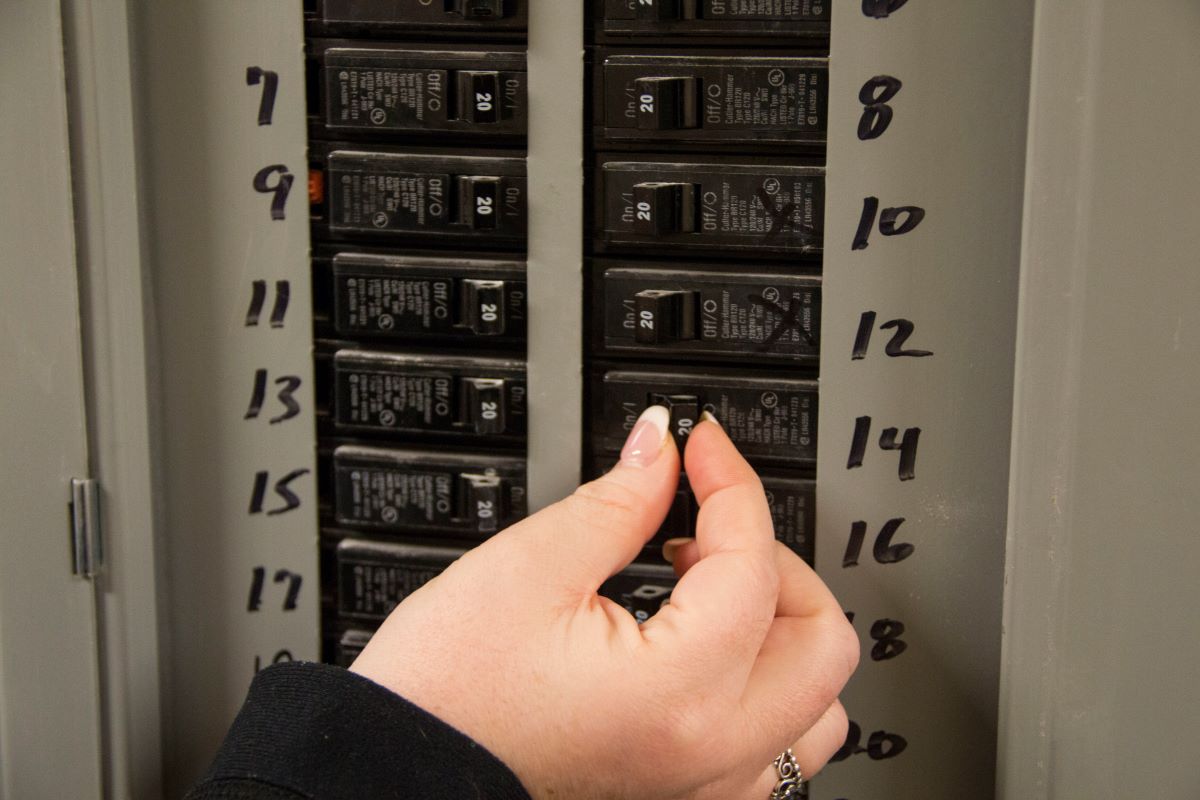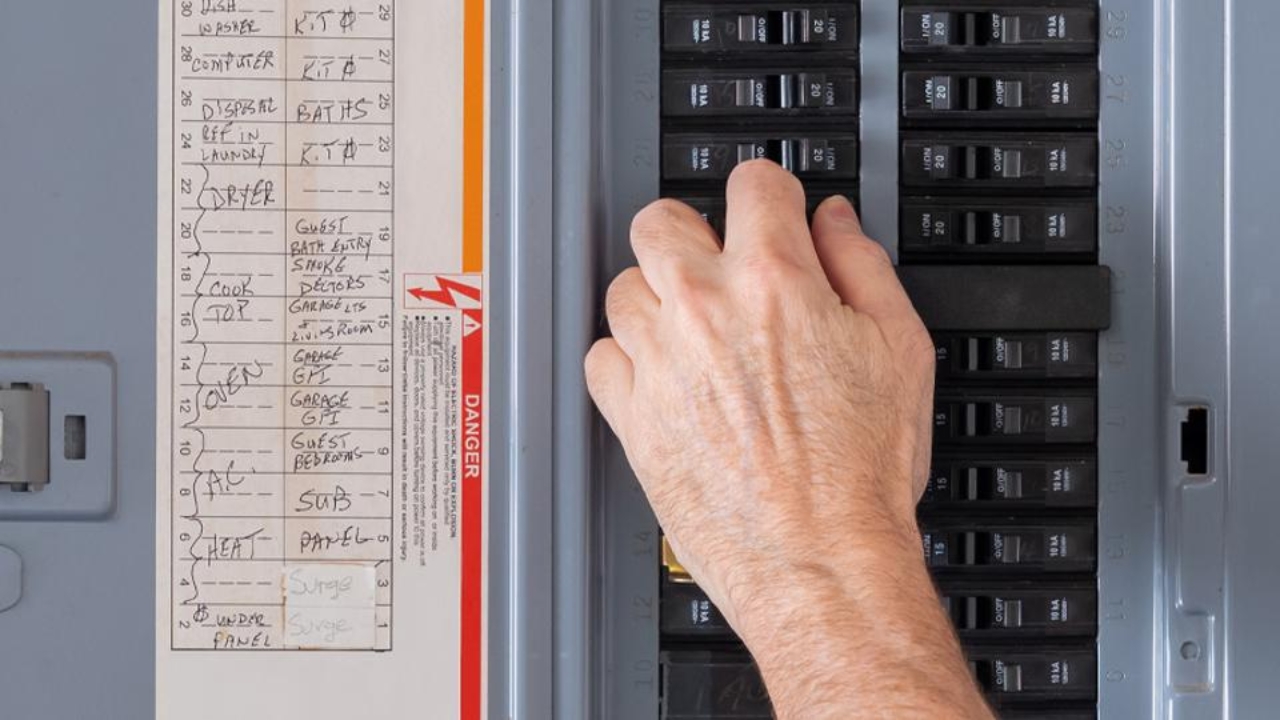Formidable Info About How Long Can A Breaker Last

The Lifespan of Your Breaker
1. Understanding Breaker Longevity
Ever wonder how long your trusty circuit breaker will keep doing its job? It's not like they have expiration dates stamped on them, is it? The truth is, a breakers lifespan can vary quite a bit, influenced by several factors. Think of it like your car — if you drive it gently and maintain it well, it'll last longer than if you treat it like you're in a demolition derby. So, let's dive into what affects how long a breaker can last. The term "breaker" here, a noun, is key to understanding the scope of this article.
Generally, a circuit breaker is designed to last for a very long time, often 30 to 40 years. That's the ideal scenario, mind you. But that doesn't mean they'll all hit that milestone. Just like anything else electrical, the way they are used plays a huge role. Frequent tripping, overloading, and even environmental conditions can take a toll.
One of the biggest enemies of a circuit breaker is heat. Overloading circuits causes them to overheat, and over time, this can degrade the internal components. Think of it like constantly running a marathon — eventually, even the toughest athlete will wear down. The same principle applies to these electrical guardians of your home.
Moreover, breakers arent completely immune to the effects of time and environment. Humidity, dust, and other contaminants can seep in and cause corrosion or other forms of degradation. A clean, dry electrical panel is a happy electrical panel, and happy breakers tend to live longer, healthier lives.

Common Culprits
2. Identifying the Causes of Early Breaker Failure
So, if breakers are designed to last for decades, why do some fail much sooner? There are a few repeat offenders we should discuss. The most common reason, by far, is frequent tripping. A breakers main job is to protect your circuits from overload, but if it's constantly tripping, it's under a lot of stress.
Another issue is corrosion, especially in damp or humid environments. Think basements, garages, or coastal areas. The salty air and moisture can corrode the breakers internal mechanisms, leading to premature failure. Regular inspection can help catch this early.
Furthermore, improper installation can also be a significant contributor. If a breaker isn't properly seated or if the wiring is loose, it can create heat and arcing, which can damage the breaker. Its always best to call in a qualified electrician for any electrical work, especially if youre not comfortable with it. Electrical safety is not something to gamble with!
Lastly, sometimes breakers simply fail due to manufacturing defects. While rare, it can happen. If you suspect a faulty breaker, it's important to replace it immediately. A malfunctioning breaker can be a fire hazard.

How Long Do Breakers Last At Peggy Rios Blog
Signs Your Breaker Might Be on Its Way Out
3. Recognizing Warning Signs of Breaker Issues
Knowing the signs of a failing breaker can prevent a much bigger problem down the road. One of the most obvious signs is frequent tripping. If a breaker is constantly tripping even when you're not overloading the circuit, its a red flag. This suggests that the breaker itself might be faulty and unable to handle the normal load.
Another sign is a burning smell coming from the electrical panel. This is a serious warning and should be addressed immediately. Turn off the affected breaker and call a qualified electrician. Burning smells indicate overheating, which can quickly lead to a fire. Safety first, always!
Physical damage to the breaker is another cause for concern. Look for cracks, discoloration, or any other signs of wear and tear. If you spot any of these, it's time to replace the breaker. A damaged breaker might not trip when it's supposed to, leaving your circuits vulnerable.
Finally, if you notice that an appliance isn't receiving power even though the breaker isn't tripped, this could also indicate a problem with the breaker. Sometimes, breakers can fail internally without visibly tripping. In such cases, it's important to test the breaker with a multimeter to see if it's functioning correctly. Or, you know, just call a pro.

How Long Do Circuit Breakers Last? KDM Steel
Extending Breaker Life
4. Tips for Maintaining Your Breakers
Want to help your breakers live longer, healthier lives? Here are a few best practices to follow. First, avoid overloading circuits. Be mindful of the appliances you're using on each circuit and make sure you're not exceeding the breaker's capacity. If you're constantly tripping a breaker, consider splitting the load onto multiple circuits.
Regularly inspect your electrical panel for any signs of damage or corrosion. Look for rust, water stains, or any other signs of trouble. If you spot anything suspicious, call a qualified electrician to investigate. Early detection is key to preventing serious problems.
Keep your electrical panel clean and dry. Dust and moisture can contribute to corrosion and other issues. Use a soft brush or vacuum cleaner to remove dust, and make sure the panel is properly sealed to prevent moisture from entering. A little maintenance goes a long way.
Consider using surge protectors to protect your breakers from power surges. Surges can damage breakers and other electrical components. Surge protectors can help absorb these surges and prevent them from reaching your breakers. It's a small investment that can save you a lot of headaches down the road.

How Long Do Circuit Breakers Last? EAbel
Replacing a Breaker
5. Knowing When Professional Help is Needed
While it might be tempting to replace a breaker yourself, it's generally best to leave this task to a qualified electrician. Electrical work can be dangerous, and it's important to know what you're doing to avoid injury or damage to your home. If you're not comfortable working with electricity, don't take the risk.
An electrician will be able to properly diagnose the problem and determine if the breaker needs to be replaced. They'll also ensure that the new breaker is correctly installed and that all safety precautions are taken. Remember, improper installation can be a fire hazard.
Furthermore, electricians have the tools and knowledge to safely work with electrical systems. They know how to de-energize circuits, test for voltage, and perform other tasks that are essential for electrical safety. Don't underestimate the value of professional expertise.
Finally, hiring an electrician can give you peace of mind knowing that the work has been done correctly and safely. It's an investment in your home's safety and your own well-being. Electrical mishaps are no laughing matter.

Reset Circuit Breaker Still No Power » Wiring Draw And Schematic
FAQ
6. Your Questions Answered
Let's tackle some frequently asked questions to keep you powered up with knowledge!
Q: How often should I replace my circuit breakers?A: Generally, circuit breakers are designed to last 30-40 years under normal conditions. However, regular inspections can help identify potential issues before they become serious problems. If a breaker is tripping frequently, showing signs of damage, or failing to provide power, it should be replaced immediately.
Q: Can I test a circuit breaker myself?A: Yes, you can test a circuit breaker using a multimeter. However, it's important to exercise caution and follow all safety precautions. If you're not comfortable working with electricity, it's best to call a qualified electrician. Safety always comes first!
Q: What's the difference between a circuit breaker and a fuse?A: A circuit breaker is a reusable electrical safety device that automatically shuts off a circuit when it detects an overload or short circuit. A fuse, on the other hand, is a one-time-use device that melts and breaks the circuit in the same situation. Circuit breakers can be reset, while fuses need to be replaced.